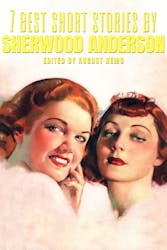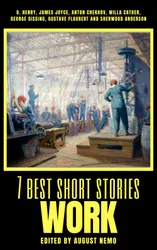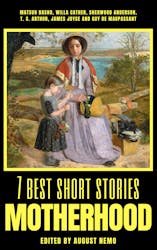In Sherwood Anderson's 'Winesburg, Ohio: A Group of Tales of Ohio Small Town Life', the reader is immersed in a series of interconnected short stories that provide a profound exploration of the human condition in a small American town. Anderson's literary style is characterized by its simplicity and raw emotion, as he delves into the inner lives of his characters, exposing their struggles, desires, and frustrations. Set in the early 20th century, the book reflects the shifting social landscape of rural America, capturing the tension between tradition and modernity. The episodic nature of the narrative adds depth to the themes of isolation, communication, and individuality. Anderson's vivid descriptions and psychological insights make 'Winesburg, Ohio' a timeless work of American literature. Sherwood Anderson, a prominent figure in the American literary scene of the early 20th century, drew inspiration from his own experiences in small-town Ohio to create this poignant and evocative masterpiece. His background as a successful businessman turned writer gives a unique perspective to the narratives, infusing them with authenticity and depth. Recommended for readers who enjoy character-driven fiction and nuanced storytelling, 'Winesburg, Ohio' is a classic work that continues to resonate with audiences today.

Mørk latter
Sherwood Anderson
audiobookbook
A New Testament
Sherwood Anderson
book
Winesburg, Ohio: A Group of Tales of Ohio Small Town Life
Sherwood Anderson
book
Triumph of the Egg, and Other Stories
Sherwood Anderson
book
Horses and Men: Tales, long and short, from our American life
Sherwood Anderson
book
Winesburg, Ohio : Collected Tales of Small-Town Life in Ohio
Sherwood Anderson
book
Anthology of Classic Short Stories. Vol. 3 (Epiphanies) : The Dead by James Joyce, A Death in the Desert by Willa Cather, The Madonna of the Future by Henry James, The Kiss by Anton Chekhov and others
James Joyce, Sherwood Anderson, Willa Cather, Edith Wharton, Kate Chopin, George Moore, Henry James, Anton Chekhov
book
Riso nero
Sherwood Anderson
book
Winesburg, Ohio : A Group of Tales of Ohio Small-Town Life
Sherwood Anderson
book
7 best short stories by Sherwood Anderson
Sherwood Anderson, August Nemo
book
7 best short stories - Work
O. Henry, James Joyce, Anton Chekhov, Willa Cather, George Gissing, Gustave Flaubert, Sherwood Anderson, August Nemo
book
7 best short stories - Motherhood
Matsuo Bashō, Willa Cather, Sherwood Anderson, T. S. Arthur, James Joyce, Guy de Maupassant, August Nemo
book
